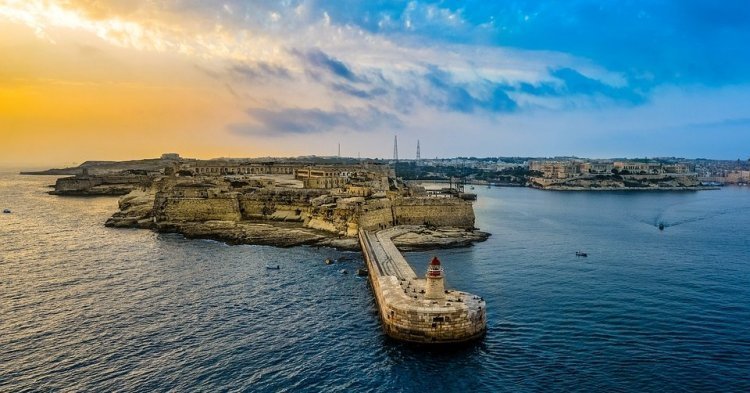Living in the European Union is globally regarded as a true privilege. We can be sure that an extraordinary number of our fellow Europeans lead a fairly comfortable existence here. Admittedly this knowledge does not always align itself with our concrete experiences - after all, we too have our day-to-day problems that can weigh on us heavily. Despite this we can assume that, on this continent, many things which are important to us work quite well. In most other regions on Earth they can sadly only dream of European standards regarding the provision of healthcare, civil liberty, peace or the availability of decently remunerated jobs. That is at least the European self-certainty.
And then this: in October of last year a bomb goes off on the tiny Mediterranean island Malta. Sitting in the car as it is completely destroyed by the force of the explosive is Daphne Caruana Galizia. Immediately after the event the prosecution in Malta speaks of murder. Only a few months later the Slovak Ján Kuciak is shot. Both people who were killed had one thing in common: they were journalists. Both were pursuing signs that pointed towards forms of criminal activities thought to be nigh on impossible nowadays, forms that are taking place right there in our midst. That they had to lose their lives for this delivers a blow to the image Europe has of itself as a region of security, as a region of peace.
The fight against European corruption is lax
However, this consternation is not just based on isolated cases. The shortcomings are a structural problem in the European Union too. The activists from Transparency International for example provide reliable data on this. Every year they compile a Corruption Perceptions index asking citizens about their experience on the subject. The results are sobering: most states were making ”little if no progress” in the fight against the corruption people see as ever-present. Admittedly there are states in Europe like Finland where the respondents do not see a big problem. But on average the EU is ranked just no. 28 on the list - with the Bahamas and Qatar on either side.
If you look closer at what the two investigative reporters brought to light, you get a sense of the scale that the problem could take on. Ján Kuciak, for example, was reporting on public officials who were taking bribes in order for the Italian mafia to be able to attain around 70 million euros of subsidies from Brussels. Daphne Caruana Galizia operated a blog where she, in a crude tone, made serious accusations against the posse around the current prime minister Joseph Muscat. The readers obviously knew how dangerous it is: ‘When will we all be silenced?’, asks one of the blog’s users two months before the attack. Two on them are now silent.
Corrupt structures are driving forces for organised crime
Regardless of the fact that corruption is itself a crime that inflicts considerable economic harm on the community, corruption has another serious effect on citizens’ security. Criminal groups use it as a tool. They find out from security services, for example, what the investigators know about them and when the next raids are due. They bribe officials from building authorities so that they are awarded public procurement contracts, they supply judges with grease money to influence trials. The European Police Office Europol goes one step further in its assessment: organised crime ‘infiltrates public and private organisations in order to make their business dealings easier’. Once these organisations are penetrated they also become less concerned with advocating more transparency. This is why Transparency International is demanding effective protection of those who escape, a measure which has so far seldom been ensured in the EU.
According to a report by the German Federal Criminal Office, organised crime in Europe is one of the ‘crucial security challenges of our time’. The authorities estimate the economic damage inflicted in 2016 to be around one billion euros - and that is just for Germany. Criminal organisations basically do everything that allows them to make money. And they probably make quite good money with human and drug trade. The criminals are also keeping busy on the internet, notching up more and more experience. Seventy percent of these organisations are operating in more than three states at once. Ten percent are active in more than seven, according to Europol’s most recent report on the subject. A transnational problem, then.
Wrestling with fear
Sincere desire to fight corruption and organised crime in the country is a formal requirement for entry into the EU. At root all European states, whether a member of the Union or not, have to battle with this problem. However, in light of current developments, namely with regard to the EU’s new lobby register, to the Azerbaijani exertion of influence on European politicians or to the lack of German parliamentarians’ understanding of transparency provisions, it’s not without good reason that the Union’s political desire can be called into question. All the more important would be the press acting more robustly. Yet they have been having a more and more difficult time of it, not just since the murder of two investigative journalists.
In the Europol report it is stated that organised crime would mostly prefer to avoid using violence or at least would only use it locally against hostile groups. Using violence excessively actually draws attention to their activities, which is particularly inconvenient for illegal business models. Therefore it may be surprising that unfavourable reporting is repaid in kind with murder. The attacks were probably meant to be unmistakable warnings to everyone who asks uncomfortable questions. The journalists’ response is clear: we won’t allow ourselves to be intimidated. But fear is first and foremost a psychological state. A public statement will change nothing in the circumstances. Not good conditions, then, for undertaking the urgently needed work.


Follow the comments: |
|
